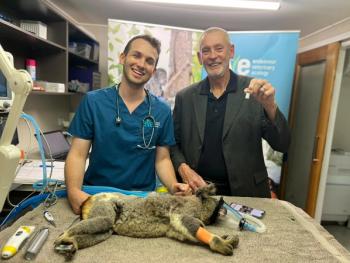
WHO: Influenza experts agree to postpone publication of H5N1 studies
Geneva, Switzerland -- It would be better to delay publishing recently contested studies on mutated H5N1 viruses than to publish partial papers in order to address bioterrorism concerns, according to an expert group recently convened by the World Health Organization (WHO).
Geneva, Switzerland
— It would be better to delay publishing recently contested studies on mutated H5N1 viruses than to publish partial papers to address bioterrorism concerns, according to an expert group recently convened by the World Health Organization (WHO).
Global influenza experts met Feb. 17 in a closed-door meeting convened by the WHO to help facilitate a consensus among scientists on both sides of the debate on whether to continue H5N1 studies.
Plans to publish two studies—one in the Netherlands and one at the University of Missouri College of Veterinary Medicine—are at the center of the debate. The studies have drawn criticism from government officials both in the United States and abroad for revealing mutations that could make it easier for H5N1 to be transmitted among mammals. Authorities worry that publishing details about how scientists achieved the mutations could lead to bioterrorism threats.
Two scientific journals agreed to wait to publish the studies when asked by government officials. The researchers themselves agreed Jan. 20 to institute a voluntary, 60-day moratorium on any new research until further discussions on bioterrorism concerns.
WHO says it convened the Feb. 17 meeting as a “first step” toward breaking a stalemate on discussions about H5N1 research. Experts at the meeting included lead researchers of the two studies, scientific journals interested in publishing the research, funders of the research, countries who provided the viruses, bioethicists and directors from several laboratories specializing in influenza.
“Given the high death rate associated with this virus—60 percent of all humans who have been infected have died—all participants at the meeting emphasized the high level of concern with this flu virus in the scientific community and the need to understand it better with additional research," says Dr. Keiji Fukuda, assistant director-general of Health Security and Environment for the World Health Organization. “The results of this new research have made it clear that H5N1 viruses have the potential to transmit more easily between people, underscoring the critical importance for continued surveillance and research with this virus.”
The expert group determined that delayed publication of the two studies would benefit public health more than partial publication now, according to WHO.“There is a preference from a public health perspective for full disclosure of the information in these two studies. However, there are significant public concern surrounding this research that should first be addressed,” says Fukuda.
WHO says the two critical issues surrounding publication of the studies are increasing public awareness and understanding of this research through communications and the review of biosafety and biosecurity aspects raised by the new laboratory-modified H5N1 influenza virus.
WHO says it will continue discussing broader concerns about H5N1 as well as ways to increase awareness and review biosecurity issues in future meetings.
Newsletter
From exam room tips to practice management insights, get trusted veterinary news delivered straight to your inbox—subscribe to dvm360.






